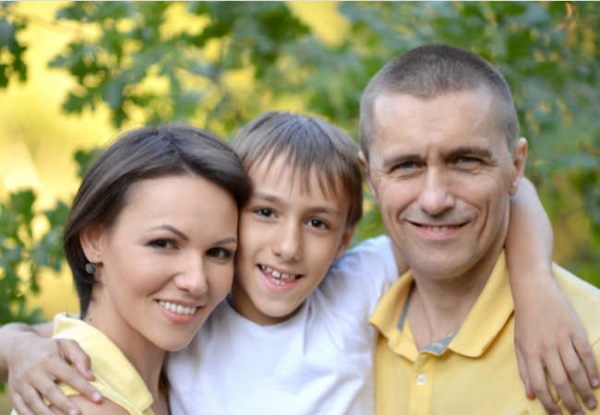Raising Emotionally Healthy Boys
by Rebecca EanesContinued...
Her comment that boys and girls have the same emotional systems struck me. Reichert echoes this in his book, saying, “Boys and girls begin life with equal capacities for expressing their hearts. Conditioning accounts for the difference.” I feel that, as a society, we’ve challenged a lot of the biases against girls, and we’ve made good progress. Yet, we seem collectively less inclined to free our boys from old, outdated misconceptions. But San Diego University psychologist Jean Twenge has tracked an alarming rise in unhappiness in young people and warns of “the most severe mental health crisis for young people in decades.” She notes a dramatic spike in depression, loneliness, anxiety, and dissatisfaction with life. Boys are ready for a change. According to Reichert, a number of recent surveys have shown that young men today are more invested in taking care of their mental health than their physical well-being and are tired of experiencing an “epidemic of anguish.”
##ad##
Miller told me, “Any time we shame, ignore, or punish a young child for crying, we’re circumventing nature’s brilliant process of brain adaption. A young child who is repeatedly dismissed or treated harshly for expressing their vulnerability will begin over time to suppress their feelings to try and stop their tears from coming. Their emotional hurt will still be present, but instead of being processed through tears of sadness, it may be expressed as aggression because the young child cannot release their frustration in a soft and vulnerable way.”
While we may be fooled into thinking we are “toughening them up” or “making them strong,” what we are really doing when we shame our boys for expressing their tender emotions is burying emotional hurt that will have to resurface in some other, likely destructive, way. Forcing them to stuff it down is making them sick, but when we know better, we can do better. There is hope for today’s young men.
Allowing Safe Expression
According to Miller, “Boys, who from a young age are encouraged to share their tears and emotions will naturally grow into men who feel their vulnerability and express themselves in socially acceptable ways. Nature wires their mature brains in such a way that they have self-control and do not need to physically act out on their frustration or burst into tears whenever they feel moved by powerful emotions. This is because they’re able to feel their emotions. Rather than suppressing or acting out on them, they learn to process them and find healthy ways to express themselves. Knowing this, there’s no reason for us to fear the tears of our boys or cling to the misguided belief that tears are unmanly.”
Psychologist Ronald Levant of the University of Akron has suggested that “no words for feelings” characterizes the emotional condition of many males. So, a good place to start is with social-emotional learning. Here are some tips:
- Give names to the feelings you see your son experiencing. “I see that you’re feeling frustrated about…” or “I understand that you feel sad because…”
- Replace time-outs with time-ins using the Time-In Toolkit which helps children name, feel, and heal their emotions.
- Validate and accept your child’s emotions while placing empathetic boundaries on behavior. For example, it’s okay to feel angry; it’s not okay to hit someone. You may need to hold space for your son while he cries or processes heavy emotions, and this is done by simply being witness to his feelings while you remain warm, open, and loving.
- Give alternatives to inappropriate expressions. For example, when my son was younger, he had a tendency to hit others when he was angry. I started keeping a small box of pre-filled balloons in our calming corner. He loved to pop them when he was angry, and so it became his go-to release instead of hitting.
##adbig##
Boys are emotional beings. They are born with the same need for love and emotional connection and we’ve been starving them for far too long. Let’s raise a generation of emotionally healthy men by changing the way we view and accept emotional expression in boys and by giving them the tools they need to grow up happy, healthy, and whole.













